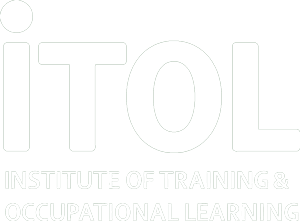Gone are the days of the listen and learn mentality, people embrace training because it enriches their lives and helps them to develop. What they don’t want is to be preached to in the overwhelming style of classroom teaching. After all, research suggests that everybody learns differently, whether this be audio, visual, kinaesthetic or a combination of the three.
Trainers have to remember that when they are dealing with more than one person they will likely have to cater for multiple learning preferences and habits. This is one of the main challenges of training; how do we, as trainers keep our trainees engaged and open to learning?
The answer to this is thematic learning; this provides a truly immersive experience for the student and keeps them engaged in your workshop content.
Applying a theme to learning makes it fun and most importantly makes it a memorable experience for those who want to learn. In a learning and development context, a theme is simply a metaphor to help the trainer express the skill that they wish to teach and it can be tied directly into the workshop content.
If you are running a workshop that is focused on growing, a gardening theme may engage your students. Similarly a detective theme may lend itself to problem solving and encourage further engagement with your workshop objectives.
A theme can help to:
- Create a fun and relaxed training atmosphere.
- Humanise the learning process- If your learners are intimidated by the typical classroom atmosphere and engaging with training, then this process should help to bring their personal goals into a safe and enjoyable environment.
- Stimulate creativity- if your students are stimulated and feeling creative then your workshop will naturally flow.
- Create strong learning links to everyday objects- creating connections is an essential part of learning, creating thematic connections can create strong neurological links for participants and enhance their learning experience.
- These links will then make it easier for your learners to apply their training to their everyday lives. Whether you are a coach who is focusing on personal development or a trainer who is working towards a business goal, thematic learning can help you to achieve your objective.
The theme should flow throughout the entire learning experience, this creates a sense of consistency for the learner and allows them to really settle in to the learning environment.
If trainers can tie their chosen themes into their workbook, peripherals and learning environment the underlying metaphors will add an entire new dimension to the learning experience, helping the students to learn, develop and grow.
What do you think?
If you would like to join the conversation and suggest or discuss any thematic learning ideas with us then you can reach us at
Twitter: @ITOL
Facebook: https://www.facebook.com/ITOLGLOBAL/


